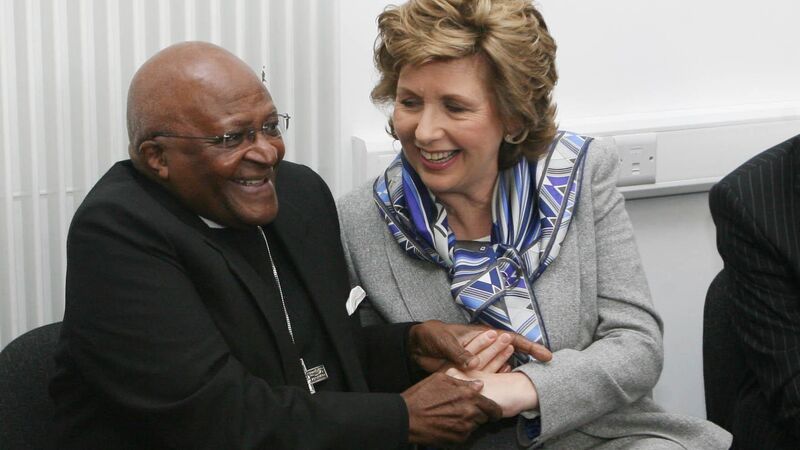Irish Examiner view: Spiritual father and voice of the voiceless

Archbishop Desmond Tutu photographed in 2009 on one of his frequent visits to Ireland with then president Mary McAleese at the opening of a new music room at St Joseph's School in Ballymun. Picture: Niall Carson/PA Wire
The passing of Desmond Tutu, spiritual father of the Rainbow Nation and friend to the dispossessed and the poor, has lost us the influence of a leader described as a “moral titan” by former president Barack Obama.
The 1984 Nobel Peace Prize winner’s charisma, wit, and resilience created a bridge over which Nelson Mandela could lead his people on their walk to freedom. He introduced South Africa’s first freely elected president from a balcony in Cape Town in 1994 telling a highly-charged crowd: “We are the Rainbow People of God.”
















